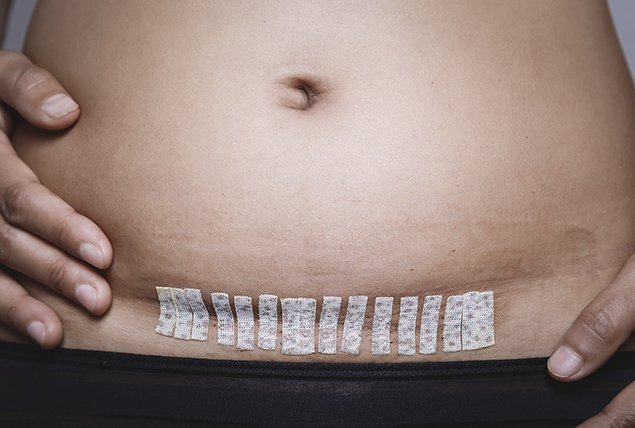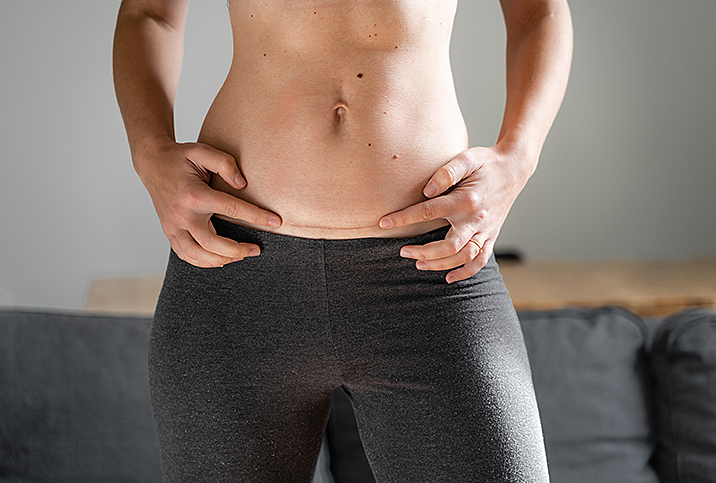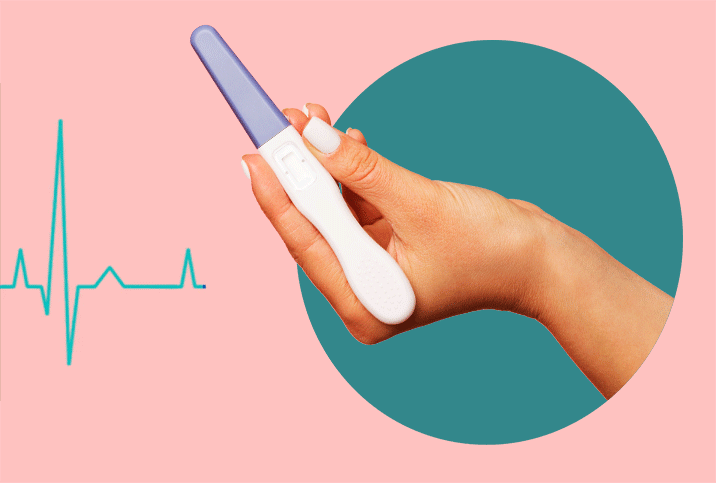Signs You May Need a Hysterectomy and How They're Performed

Hysterectomies are among the most common surgeries in the United States. Roughly 600,000 hysterectomies are performed annually, according to a 2020 study.
One in 3 U.S. women will have a hysterectomy by age 60, according to the Centers for Disease Control and Protection (CDC).
What is a hysterectomy?
During a hysterectomy, a surgeon removes some or all of a woman's uterus. In some hysterectomies, other parts of a woman's reproductive system are removed, such as the cervix, ovaries and fallopian tubes.
After a woman's uterus is removed, she will no longer have periods and cannot become pregnant.
There are different types of hysterectomies. Your physician can help determine the best hysterectomy procedure for your health condition.
What is a partial hysterectomy?
Partial hysterectomies (subtotal or supracervical hysterectomies) remove the uterus, leaving the cervix untouched.
What is a total hysterectomy?
Total hysterectomies remove the uterus and the cervix but not the ovaries.
What is a total hysterectomy with bilateral salpingo-oophorectomy?
This hysterectomy will remove the uterus, cervix and at least one (if not both) of the ovaries (oophorectomy), in addition to one or both of the fallopian tubes.
What is a radical hysterectomy?
Radical hysterectomies remove the uterus, cervix, tissue around the cervix, and the upper part of the vagina. In some cases, the ovaries, fallopian tubes and abdominal lymph nodes may be removed.
How is a hysterectomy performed?
There are different ways of performing a hysterectomy. Your physician will determine the best type of hysterectomy for you based on your needs, such as the size of your uterus.
What is an abdominal hysterectomy?
An abdominal hysterectomy is performed when someone has pelvic tumors which cannot be removed from their vagina or large fibroids.
The surgeon makes a cut in the abdomen (vertically or horizontally, depending on the reason for the hysterectomy).
"Stitches or metal clips will be used to close the cut and a sterile dressing will be placed over it. The operation usually lasts about an hour and is performed under general anesthesia," according to Spire Healthcare.
This kind of hysterectomy is an open surgery. The hospital stay after an abdominal hysterectomy can last from one to three days and recovery is generally four to eight weeks, according to UCLA Health.
What is a vaginal hysterectomy?
A vaginal hysterectomy removes the uterus, and sometimes the cervix, ovaries and fallopian tubes, through an incision in the vagina.
"Vaginal hysterectomies are the most minimally invasive approach available for hysterectomy since they are performed through a natural route with no external incisions," according to the Texas Children's Hospital Women's Pavilion.
General anesthesia is often used for vaginal hysterectomies.
What is a laparoscopic hysterectomy?
A laparoscopic hysterectomy, or keyhole hysterectomy, can sometimes be considered a replacement for abdominal hysterectomy.
"It has been well established that patients who have a laparoscopic hysterectomy have less pain, less bleeding, less risk of infection and are quicker to return to work and normal activities than women who have an abdominal hysterectomy," according to Brigham and Women's Hospital.
During this procedure, a small tube containing a tiny camera, or laparoscope, is inserted into the abdomen. Other instruments are inserted into these small incisions to remove specific parts of the reproductive system.
This procedure is performed via general anesthesia.
What is a robotic-assisted laparoscopic hysterectomy?
Similar to a laparoscopic hysterectomy, the difference between the two types of procedures is that in a robotic-assisted hysterectomy, the surgeon is using a computer.
"Robotic hysterectomy uses a combination of high-definition 3D magnification, robotic technology and miniature instruments to improve a surgeon's ability to view, manipulate, and remove the uterus," according to Johns Hopkins Medicine.
This procedure is also performed under general anesthesia.
Why do people get a hysterectomy?
Hysterectomies are performed for a variety of reasons. Hysterectomies can be a treatment for those who suffer from health conditions that aren't responding to other methods or as a form of permanent birth control.
Roughly 10 percent of hysterectomies are to treat ovarian, cervical or endometrial cancer, according to Stanford Medicine Health Care. A hysterectomy will not cure polycystic ovary syndrome (PCOS), but it could help reduce symptoms, such as heavy periods or cramping.
Other health conditions that may require a hysterectomy could include the following:
- Uterine fibroids
- Endometriosis
- Adenomyosis, or a thickening of the uterus
- Uterine prolapse
- Persistent vaginal bleeding
- Chronic pelvic pain
- Cancer of the ovaries, cervix or uterus
Surgical Menopause
Surgical menopause is a surgery-induced version of natural menopause. Natural menopause occurs when a woman has not had a menstrual period in 12 months and can no longer become pregnant.
If a woman undergoes a hysterectomy that includes the removal of the ovaries, which are responsible for menstrual periods, she will experience surgical menopause.
Natural menopause side effects include mood changes, hot flashes, low libido and vaginal dryness. Surgical menopause can include a few additional side effects, such as loss of bone density, increased risk of heart disease and hormonal imbalances, according to the Australasian Menopause Society.
Cervical Cancer
Cervical cancer affects the lining of the cervix, or the lower part of the uterus and the connection point between the uterus and the vagina. There are multiple treatments available for addressing cervical cancer.
Depending on the type of cervical cancer or pre-cancer, a hysterectomy may be recommended.
Endometriosis
Endometriosis, a painful pelvic disorder, is caused by the growth of interior uterine tissue on the exterior of the uterus.
Like interior tissues, these exterior tissues still break down monthly to form a menstrual period, but unlike interior tissues, they cannot exit the body and become trapped, according to Mayo Clinic. This blockage can cause buildup, scar tissue, adhesions and, in some cases, eventual fertility issues.
There is no cure for endometriosis. However, some treatments can be effective for pain management. To address severe cases of endometriosis, some patients may choose surgical treatment, including hysterectomies.
How do you prepare for a hysterectomy?
Though quite common, a hysterectomy is still surgery and can be intimidating. It is normal to feel nervous. Follow your physician's recommendations, but in general, consider the following tips:
In the weeks before your surgery:
- Drink a lot of liquids.
- Get your post-op prescriptions filled.
- Make arrangements for your transportation and care following your surgery and for the weeks ahead.
- Arrange help for tasks such as vacuuming or anything else involving lifting.
The day before surgery:
- Follow your doctor's instructions regarding food.
- Get all your medical information organized and within easy reach to share with your pre-operation doctor.
- Follow all provider instructions for eating, drinking and bowel preparation.
- Get a good night's sleep.
The day of your surgery:
- Don't eat breakfast unless your providers say you can.
- Remove any jewelry.
- If you're feeling sick, contact your provider and reschedule the surgery.
- Bring any required paperwork with you.
What is the recovery time for a hysterectomy?
Recovery time will vary depending on the surgery type and your general health, according to Premier Health. You may spend a few days in the hospital, during which providers will encourage you to walk as soon as you can. Moving around helps avoid blood clots.
The overall convalescent period can last anywhere from three to six weeks.
Post-surgery, you could experience the following symptoms:
- Vaginal bleeding
- Vaginal discharge
- Constipation
- Bladder issues
- Emotional effects
How to sit after hysterectomy?
"Sitting back in your chair with a small pillow or rolled towel to support your lower back will help you to sit with a good posture. If you wish, you may find it comfortable to place a footstool under your seat," according to James Paget University Hospitals.
Speak with your doctor to ensure you don't have special considerations.
How long until you can take a bath after hysterectomy?
Follow your doctor's instructions. Typically, you may be able to shower as soon as 24 to 48 hours after surgery. You'll likely have to wait a minimum of two weeks before you can take a bath, according to Alberta Health Services.
How long until you can drive after a hysterectomy?
You will have to wait to drive from three days until two weeks after your surgery, or longer. It depends on whether or not you are taking pain medication, Allina Health said.
How can I minimize the appearance of my hysterectomy scars?
Once your scar has healed, massage your scar for three weeks.
"Place your 2nd and 3rd fingers over the scar and apply gentle pressure while moving your hand in a circular motion," the UNC Department of Obstetrics and Gynecology states.
How do you live with a hysterectomy?
A hysterectomy cannot be reversed; it makes permanent changes to your body. You won't experience rapid aging after a hysterectomy, either. While some health conditions, such as menopause, are associated with a more advanced age, your physical age is the same after the procedure.
The Mayo Clinic notes the following:
- You will no longer have periods.
- You cannot become pregnant.
- If you are premenopausal and you have your ovaries removed, menopause will start.
- If you are premenopausal and you keep your ovaries, menopause may start at an earlier age than average.
- You may feel a sense of loss after your surgery, which is normal. If this grief becomes debilitating, talk to your doctor.
Do you need a pap smear after a hysterectomy?
Yes, you will still need to visit your OB-GYN, even after you've had surgery to remove your uterus.
"Depending on the reason for your hysterectomy, you still may need pelvic exams and cervical cancer screening. Cervical cancer screening includes Pap tests, testing for human papillomavirus (HPV), or both," the American College of Obstetricians and Gynecologists states.
How long does menopause last after total hysterectomy?
If you've had both of your ovaries removed, you will experience surgical menopause immediately after surgery.
"If one or both ovaries are intact after surgery, menopause may happen earlier than usual, but with a normal transition phase instead of right after surgery," according to Forbes.
Do you gain weight after a hysterectomy?
A 2009 study indicates women may be at a higher risk of gaining weight the first year after a hysterectomy. Women who already have weight fluctuations or are heavier may be at a higher risk of weight gain post-surgery.
Does a hysterectomy affect your sex life?
Women who undergo hysterectomies for chronic pain often experience an improvement in their overall quality of life, which extends to their sex lives. Many women report an increase in sexual pleasure following a hysterectomy, likely as a result of pain relief, according to Mayo Clinic.
For premenopausal women who have had hysterectomies, feelings of grief following the loss of fertility can inhibit sexual pleasure, but this is usually temporary. If these feelings of remorse, loss or grief persist, speak with your doctor.
Can you experience a loss of libido after a hysterectomy?
If a woman has a partial hysterectomy in which she keeps her cervix and ovaries, she may experience fewer hormonal imbalances and maintain her libido.
"One-quarter of the hormone is produced in the ovary, a quarter is produced in the adrenal gland, and one half is produced in the peripheral tissues from the various precursors produced in the ovaries and adrenal gland," according to an excerpt from the World Journal of Urology 2002.
However, the physical changes stemming from certain hysterectomies, such as removing the cervix and the upper portion of the vagina, may reduce a woman's libido, according to Healthy Women.
Can you orgasm after a hysterectomy?
Yes, a woman can orgasm after a hysterectomy (after waiting the doctor's recommended time before having sex).
Although some women may feel a reduction in libido in the weeks following surgery, a hysterectomy doesn't remove the sensitive clitoris or labia. Some physicians will recommend hormone replacement therapy (HRT).
If you declined the hormone therapy or weren't offered the treatment option after your surgery, discuss your lack of libido with your doctor. Hormone replacement therapy may help you regain your libido.
Where does sperm go after a hysterectomy?
After a hysterectomy, your reproductive tract is inaccessible from your abdominal cavity. Your body will expel the sperm over time, the same as your typical vaginal fluids, according to Nava Health.
What are the possible complications after a hysterectomy?
Though hysterectomies are very common, all invasive surgery comes with risks. Hysterectomies may come with complications such as blood loss, damage to surrounding organs, blood clots, infection or side effects from anesthesia, according to Stanford Medicine.
In rare cases, some patients may experience pelvic prolapse.
If you have heavy bleeding, develop a fever or other complications, pulled stitches or other complications, speak to your doctor.


















